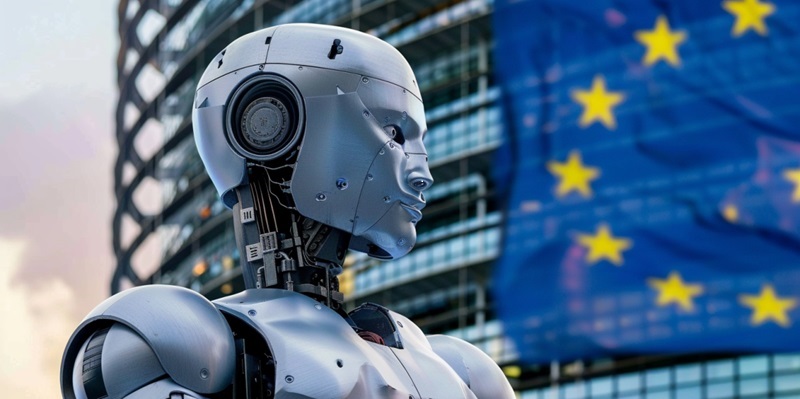With the impending implementation of the EU’s AI Act, the world is poised to witness one of the most comprehensive regulatory frameworks for artificial intelligence. This act positions the European Union at the forefront of addressing the complex challenges AI presents to society, aiming to pave a path that ensures innovation is tethered to ethical standards and societal well-being. This trailblazing legislation, by establishing clear boundaries on AI’s application, may very well serve as a model for other nations grappling with the swift advancement of AI technologies.
The Dawn of Ethical AI Governance
As the European Union readies to roll out its landmark AI Act, many eyes are looking to this legislation as a potential standard-bearer for global AI ethics. The Act presents a carefully tiered approach to AI governance, assigning stringent rules to high-risk AI systems while allowing more relaxed guidelines for less critical applications. At its core, it is designed to protect European citizens from the intrusions and dangers of unfettered technology, manifesting a key principle: technology must respect the fundamental rights and values of its users. With its rigorous requirements for transparency, accountability, and the safeguarding of privacy and data rights, the AI Act could very well inspire similar legislative efforts beyond European borders.
While the EU focuses on demarcating threats and delineating high-risk areas, it concurrently champions a nurturing environment for innovation, especially within small and medium-sized enterprises (SMEs). By including provisions like regulatory sandboxes, the Act showcases an understanding that balance is vital; the nascent field of AI not only needs oversight but also room to grow and evolve. This aspect of the AI Act spotlights the EU’s clear intent to support a sustainable and responsible AI ecosystem that could, in turn, influence global perspectives on fostering innovation alongside ethical considerations.
Challenges in the Path of Progress
The EU’s AI Act is set to become one of the most extensive regulatory frameworks for artificial intelligence globally. The European Union is taking a pioneering stance, addressing AI’s societal impact, with a clear intent to marry innovation with ethical and societal norms. This legislation marks uncharted territory by setting strict guidelines for AI usage, a move that could inspire countries worldwide as they navigate the rapid progress in AI technologies. The AI Act is a potential blueprint for nations seeking to harmonize technology advancements with moral principles, ensuring AI develops in a way that benefits society at large. As this act comes into effect, it may influence how global standards for AI are shaped in the future, reaffirming the importance of regulations that prioritize ethical considerations in the realm of digital innovation.

